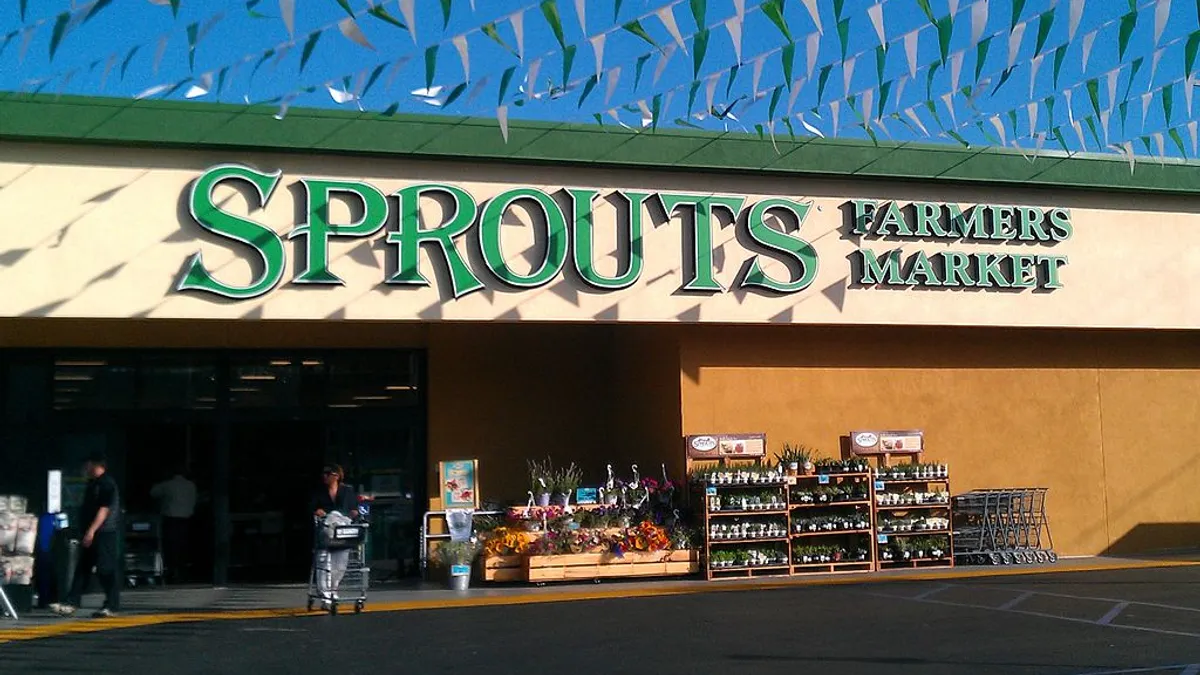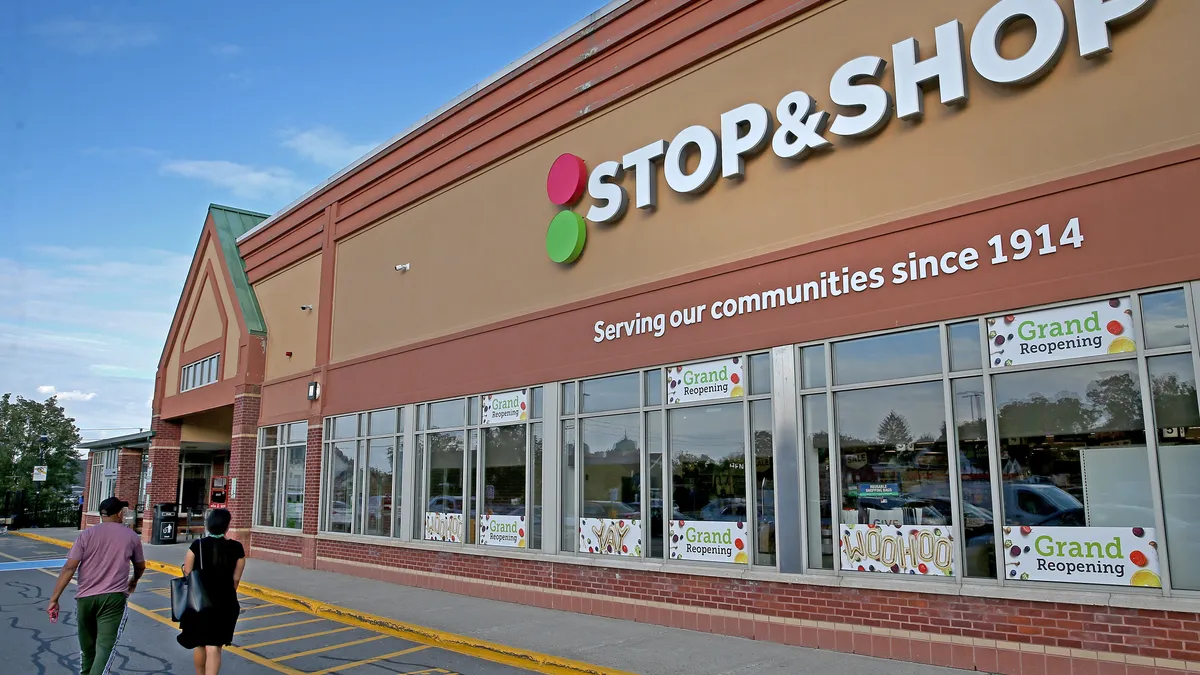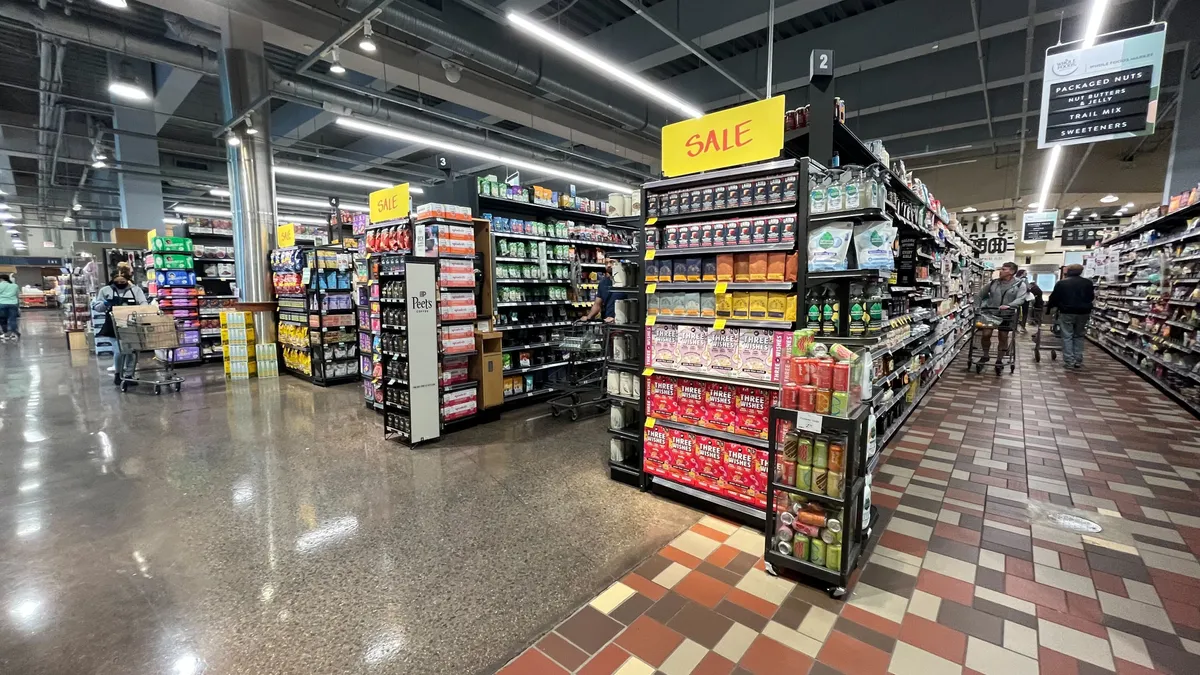Dive Brief:
- Sprouts Farmers Market CEO Amin Maredia told attendees at Goldman Sachs’ 24th Annual Global Retailing Conference yesterday that home delivery has expanded the company’s market reach, and that the company wants to become a top e-commerce player in the coming years.
- Maredia said the company’s relationship with Amazon, its current online shopping and delivery partner, hasn’t changed in light of its recent takeover of Whole Foods, but that discussions are ongoing. Sprouts is also exploring relationships with other e-commerce providers. “We’ll be on multiple platforms over time, because we know customers don’t shop at just one spot,” he said.
- When asked if Sprouts will continue to use its stores to fulfill orders, Maredia said this will be the plan for the mid to near term, but said the company would likely utilize dark stores once e-commerce sales approached 20%.
Dive Insight:
Although much has been said about the inefficiencies of last-mile delivery, Sprouts is clearly seeing benefits from it. As CEO Amin Maredia told investors at yesterday’s Goldman Sachs conference, delivery has extended Sprouts’ market reach beyond the five to seven-minute radius that shoppers are typically willing to travel to reach one of its stores. This has provided incremental gains in the form of added sales and new customers.
“[Delivery] is offering the strategic benefit of extending our trade area beyond what most customers like to shop in terms of driving distance,” Maredia said.
In some ways, these benefits are unique to Sprouts’ model. As Maredia pointed out, the company doesn’t operate as many locations in a given market as conventional competitors do, making it important to draw customers from a broader radius around stores. Conventional competitors, on the other hand, are often replacing store sales with home delivery rather than adding dollars or customers, he noted.
“For most conventional retailers that have high density and penetration, the majority of home delivery is going to be cannibalization to the store,” said Maredia. “For a retailer like Sprouts, we can see true incrementality. We think it’s a value add."
Sprouts may trial a click-and-collect model if shoppers ask for it. But Maredia said the retailer’s smaller format — stores average 30,000 square feet — means store pickup doesn’t add much in the way of convenience.
Sprouts is currently the biggest retail partner for Amazon Prime Now’s e-commerce platform, with stores in Dallas, Denver, San Diego and elsewhere offering store ordering and delivery. The future of that relationship is up in the air, however, with Amazon now a competitor in the specialty grocery space following its Whole Foods acquisition. Sprouts stock price dropped nearly 10% after Amazon announced opening price cuts at Whole Foods. Maredia said that relationship hasn’t changed, but left the door open for the possibility of partnering with Shipt, Instacart or another provider in the near future.
“We can say with one certainty there’s one platform that has full comfort, and that’s the Sprouts platform,” he said. “We’re really looking at all the potential risks and opportunities with every potential partner.”
Utlimately, Maredia said he sees Sprouts becoming a top online grocery provider in the coming years. The retailer plans to grow by around 30 stores per year, with plans to expand from its current count of 260 to around 1,200. Many other retailers have expanded their e-commerce services, he noted, but the ones that invest and innovate will ultimately dominate the market.
Using 10% market share for e-commerce as a hypothetical, Maredia said: “I believe that the 10% — say it’s 80 billion — is not going to go all 40,000 retailers in America. It’s going to go to the top two, three, four thousand that are really, really good. They’re going to deliver on the brand, on the quality and on the execution, and we think we’re one of the winners in that environment.”










